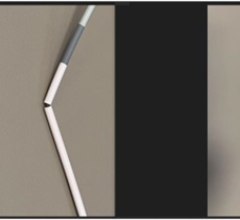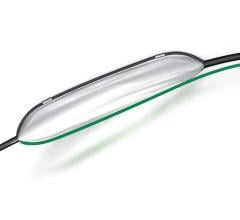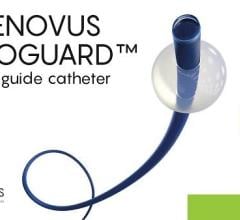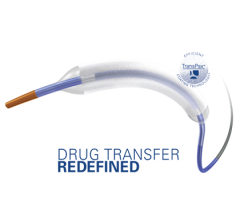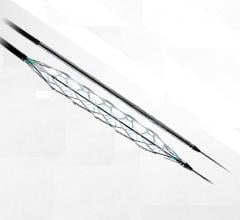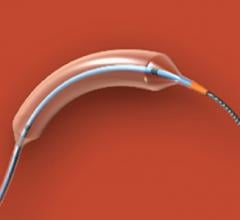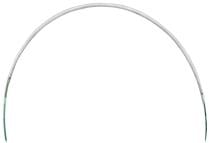
March 4, 2015 — Biotronik announced that results of its BIOLUX P-I clinical study have been published in the Journal of Endovascular Therapy. BIOLUX P-I was a prospective, international, multi-center, first-in-human, randomized, controlled trial that enrolled 60 patients at five centers in Germany and Austria. The study assessed the safety and efficacy of the Passeo-18 Lux drug-coated balloon (DCB) in treating de novo and restenotic femoropopliteal lesions. The positive results were instrumental in gaining CE mark in December 2013.
Passeo-18 Lux is a novel combination device for treating de novo and restenotic lesions in the infrainguinal arteries. Its design is based on that of the Passeo-18 uncoated balloon catheter, combined with a balloon coating containing a matrix of anti-proliferative paclitaxel and Butyryl-Tri-Hexyl-Citrate, a biocompatible excipient to enable optimal drug transfer to the target lesion tissue.
Data collected at six and 12-month intervals demonstrated that patients treated with Passeo-18 Lux DCB were less likely to require treatment again.
At six months, patients treated with the device had a significantly lower late lumen loss (LLL) (0.51±0.72 vs. 1.04±1.00; p=0.033) and binary restenosis rate (11.5 percent vs. 34.6 percent; p=0.048) compared to the control percutaneous transluminal angioplasty (PTA)-treated patients. Correspondingly, clinically-driven target lesion revascularization (TLR) was lower in the Passeo-18 Lux DCB group at 12 months (16.0 percent vs. 52.9 percent; p=0.020) for the as-treated population. In addition, patients receiving treatment with Passeo-18 Lux showed greater improvement in Rutherford class compared to baseline (72.0 percent) versus those receiving treatment with PTA (65.2 percent).
"The study has generated the positive clinical data required to prove the validity of Passeo-18 Lux as an efficacious therapy in the treatment of femoropoplieteal vessels," commented Dierk Scheinert, M.D., primary investigator of BIOLUX P-I, University Hospital Leipzig, Germany. "With restenosis following treatment with standard PTA balloons as a significant issue, Passeo-18 Lux is proven to be an effective and durable treatment option in treating disease in the more challenging peripheral vascular anatomy."
The results of the study are being used as a foundation to further investigate Passeo-18 Lux in real world populations, such as the BIOLUX P-III All-Comers Registry, which is currently enrolling patients in Europe and Asia Pacific. Results from BIOLUX P-I are in line with other scientific data, suggesting that treatment with DCB is a viable option and has the potential to become the standard for treating femoropopliteal arteries.
For more information: www.biotronik.com

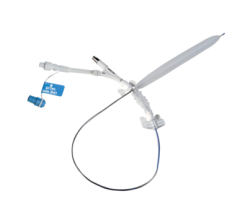
 June 13, 2024
June 13, 2024 
